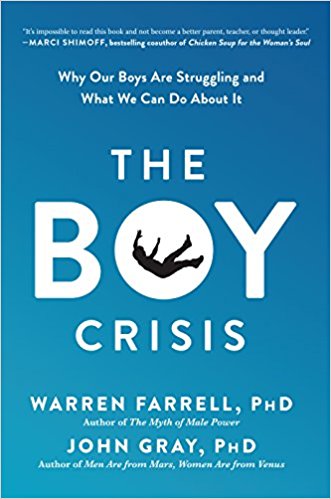![]()
Report critical of way disabled children treated
Globe and Mail, by Andre Picard, Public Health Reporter, Thursday, November 18, 1999
Canada is systematically violating seven articles of the United Nations Convention on the Rights of the Child, with the most glaring failure its treatment of disabled children, according to a report being released today.
The report says children in Canada with disabilities are not guaranteed basic educational and social services. Canada also violates the human rights of refugee claimants and immigrants by rejecting those with disabilities, the Canadian Coalition for the Rights of Children says.
The umbrella group of 34 non-governmental organizations is calling on the federal government to repeal the section of the Criminal Code that allows corporal punishment, to modify legislation to specifically guarantee children's rights, and to honour its commitment to spend 0.7 per cent of gross national product on international aid.
"Canada meets most of its obligation under the convention, so this report is not a condemnation," Dianne Bascombe, a board member of the CCRC, said in an interview. "But, from the point of view of children living in Canada, there is a lot of work to be done. We can't allow ourselves to be complacent."
The Convention on the Rights of the Child, which was adopted by the United Nations in 1989, is touted as the most comprehensive human rights document in history. All but two countries -- the United States and Somalia -- have ratified it. Twenty countries have included the convention in their constitutions, and another 32 have modified laws to comply with its terms.
Senator Landon Pearson, the founding chairwoman of the coalition, said that Canadian legislation rarely recognizes children specifically, and that means adults can place arbitrary limits on children's fundamental freedoms.
"Putting children in legislation matters because it makes people understand that we are talking about human beings with rights, not chattel," she said.
The 138-page report, entitled How Does Canada Measure Up?, says there are at least 535,000 children in Canada who have a long-term emotional, physical or mental disability, with at least 4 per cent of them considered severely disabled. Those numbers have not been measured since 1991. The report says these children's right to participate fully in Canadian society is systematically violated.
"Children with disabilities have varying opportunities to live full and decent lives and the supports and services they need are not considered an entitlement but a privilege. Many families of children with disabilities do not receive adequate assistance. Early identification and intervention services are not universally available and the right to appropriate education in the most enabling environment is not guaranteed," the report says.
Canada is labelled hypocritical for outlawing discrimination against people with disabilities while explicitly permitting such discrimination in immigration and refugee cases.
Aboriginal children have a disability rate twice that in the general population, and are far more likely to be victims of abuse. In fact, "abused and neglected children continue to fall through the cracks in our child welfare system," the coalition says.
The report calls for the immediate repeal of Section 43 of the Criminal Code, which allows "reasonable force" to be used by parents and teachers meting out discipline. "This provision has been used to justify a child being punched in the face or pushed down the stairs. In Canada, children are the only category of persons who can be subject to physical assault without due process," the coalition says. (Section 43 is currently being challenged in the courts.)
Another area that requires immediate attention, the report says, is Canada's commitment to overseas development, and to aiding children in particular. Canada spends $1.8-billion annually; that's 0.32 per cent of GNP, less than half of the government's target of 0.7 per cent, the coalition says.
"Children's rights are an explicit priority in Canadian foreign policy. However, it is not clear how well that philosophical commitment is supported in practice," the report says. For example, only 11 per cent of funds from the Canadian International Development Agency ($238-million a year) is targeted at children.
Canada's refugee claim process also neglects the needs of children, according to the Canadian Coalition for the Rights of Children.
The average wait for a refugee claim is 13 months, an "extraordinarily long period of time from a child's perspective." For refugees without identity papers, family reunification can take up to seven years. During the process, refugees cannot travel out of Canada and their families (including children) cannot join them. In deportation hearings the interests of children, even those born in Canada, do not have to be considered, the report says.
The coalition is calling for a permanent monitoring mechanism to track compliance with the convention and to focus public debate on the human rights of children.
Globe Information Services

Why boys are in trouble
Boys have been painted as the bad guys in the push to encourage girls to succeed, leaving many young men feeling confused and alienated, wondering what they did wrong
The Associated Press
January 5, 1999
According to psychologist and author William Pollack, 'sports are the one arena in which many of society's traditional strictures about masculinity are often loosened, allowing boys to experience parts of themselves they rarely experience elsewhere.'
When Harvard Medical School psychologist William Pollack administered a test to a group of 150 teenaged boys a few years ago, the results were shocking.

The Boy Crisis Book
The Boy Crisis: Why Our Boys Are Struggling and What We Can Do About It
Authors- Waren Farrell PhD and John Gray PhD
What is the boy crisis?
It's a crisis of education. Worldwide, boys are 50 percent less likely than girls to meet basic proficiency in reading, math, and science.
It's a crisis of mental health. ADHD is on the rise. And as boys become young men, their suicide rates go from equal to girls to six times that of young women.
It's a crisis of fathering. Boys are growing up with less-involved fathers and are more likely to drop out of school, drink, do drugs, become delinquent, and end up in prison.
It's a crisis of purpose. Boys' old sense of purpose-being a warrior, a leader, or a sole breadwinner-are fading. Many bright boys are experiencing a "purpose void," feeling alienated, withdrawn, and addicted to immediate gratification.
So, what is The Boy Crisis? A comprehensive blueprint for what parents, teachers, and policymakers can do to help our sons become happier, healthier men, and fathers and leaders worthy of our respect. Read More ..

Health Canada Publication
The Invisible Boy: Revisioning the Victimization of Male Children and Teens
"... the existence of a double standard in the care and treatment of male victims, and the invisibility and normalization of violence and abuse toward boys and young men in our society.
Despite the fact that over 300 books and articles on male victims have been published in the last 25 to 30 years, boys and teen males remain on the periphery of the discourse on child abuse.
Few workshops about males can be found at most child abuse conferences and there are no specialized training programs for clinicians. Male-centred assessment is all but non-existent and treatment programs are rare. If we are talking about adult males, the problem is even greater. A sad example of this was witnessed recently in Toronto. After a broadcast of The Boys of St. Vincent, a film about the abuse of boys in a church-run orphanage, the Kids' Help Phone received over 1,000 calls from distraught adult male survivors of childhood sexual abuse. It is tragic in a way no words can capture that these men had no place to turn to other than a children's crisis line."

